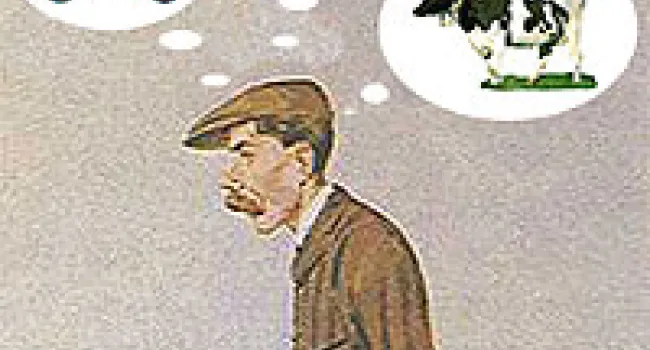Begin with the Basics, Not Rhyme, Part 2
By avoiding the immediate urge to rhyme, the author of a poem can concentrate on its meaning.
Enter Tom Slack...
This morning, Tom was later to work than usual because of a herd of cows blocking the road. He wanted to describe his thoughts and feelings about the bovine hold-up in a poem.
A whole lot of cows blocked my path,
and they did not seem to care if I got to work
on time. They just sat there looking at our cars, munching.
Tom's first poem, though rhyme free, was a far cry from what Tom meant to say. We'll follow Tom's progress as we continue through Michael's basic rules.
The meanings and sounds of your words are connected. A poet's choice of words, and the sounds of those words, can "make or break" the meaning of the poem.
Tom thought a bit more about the meanings of the words he chose. His first choice of words was flat. In fact, it was no more than small talk found in everyday conversation. Tom chose new words with meanings and sounds that increased the impact and details of what he was trying to say.
Here is his new poem:
A bunch of munching cows in my path,
Chewing their cuds as green gloppy paste
drips from their lazy mouths.
How long will they stare at our cars
knowing that they have won?
His new words are more descriptive of his experience, and his disgust towards the cows. They contain many repetitive "g" and "c" sounds and drawn-out pronunciations. He thought that the sound of these uglier words brought his poem closer to its meaning. Had the poem been about a lazy day at the river or a love poem, the sound of the poem might be completely different. A poem about love would probably contain more liquid, soft sounds. Meaning has a sound, and sound has a meaning!







